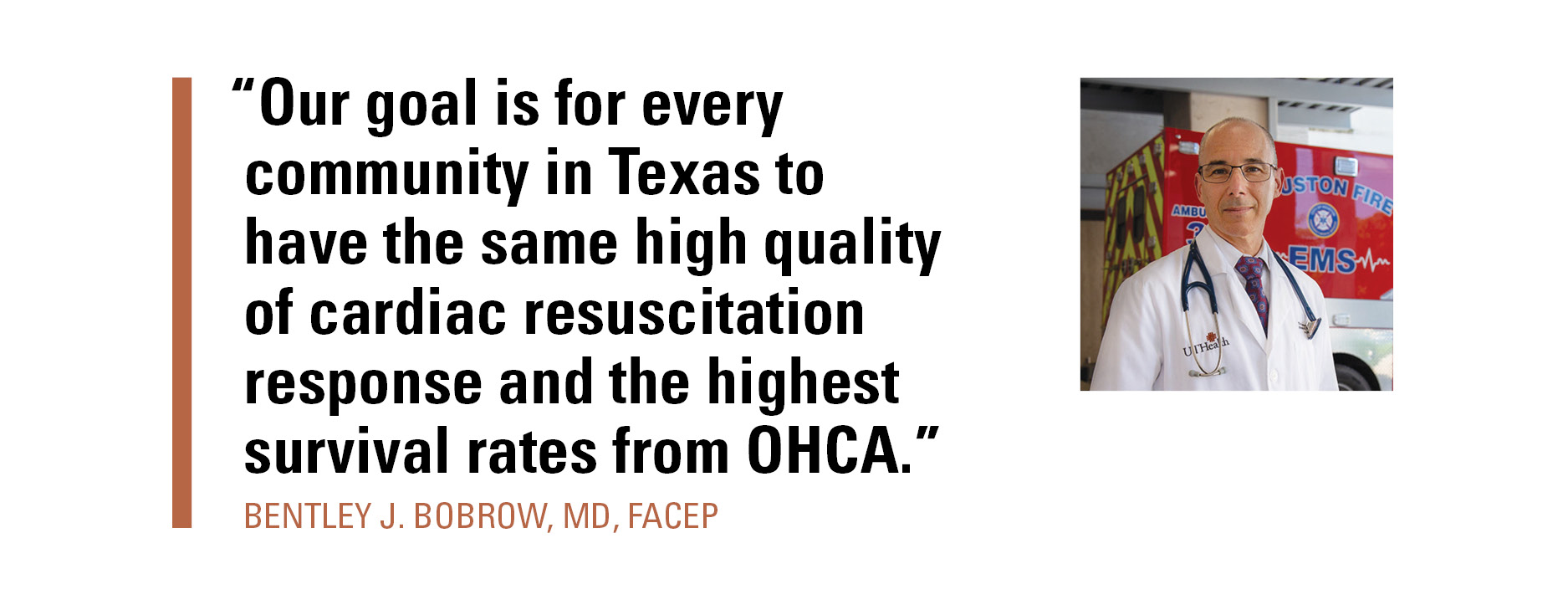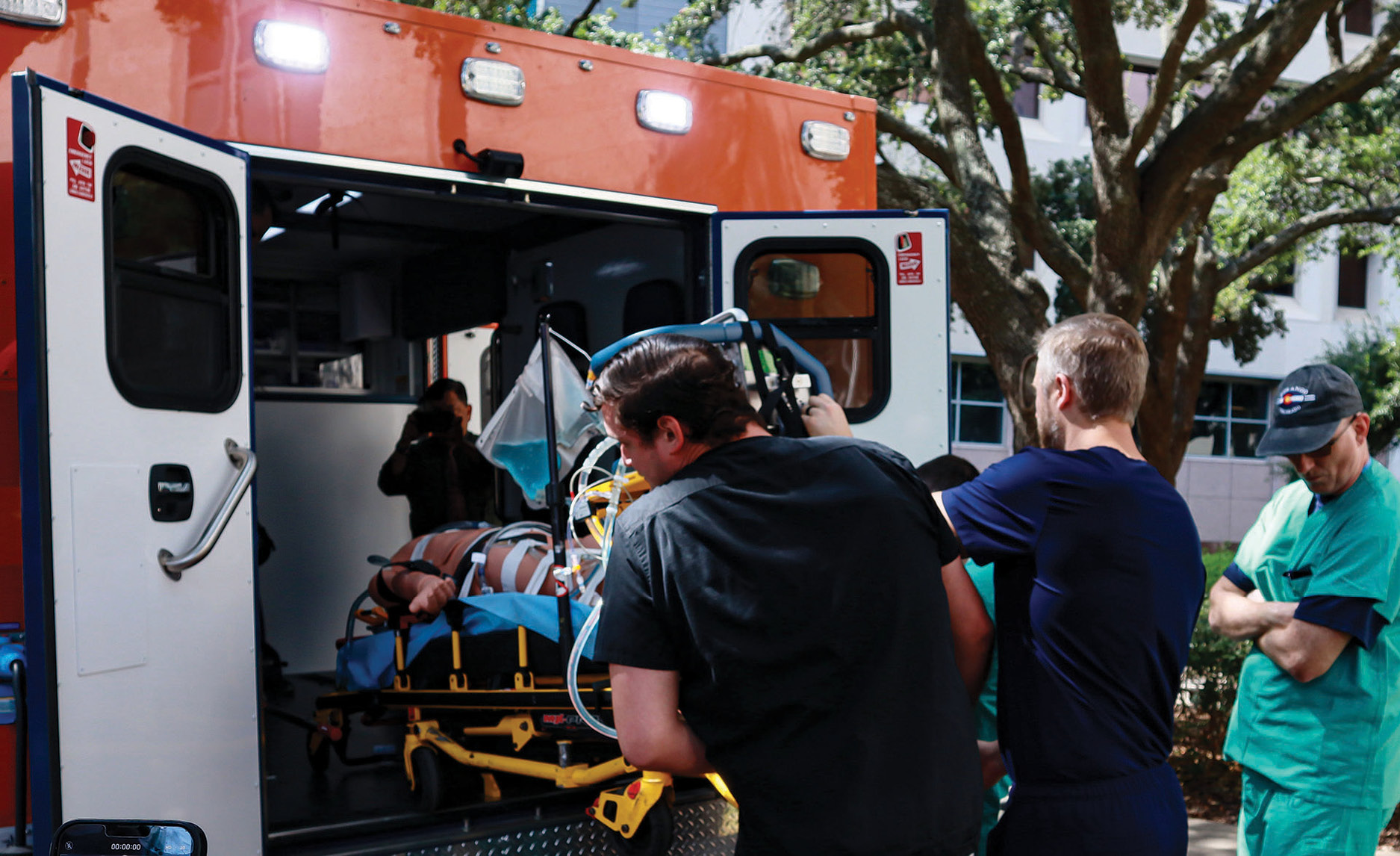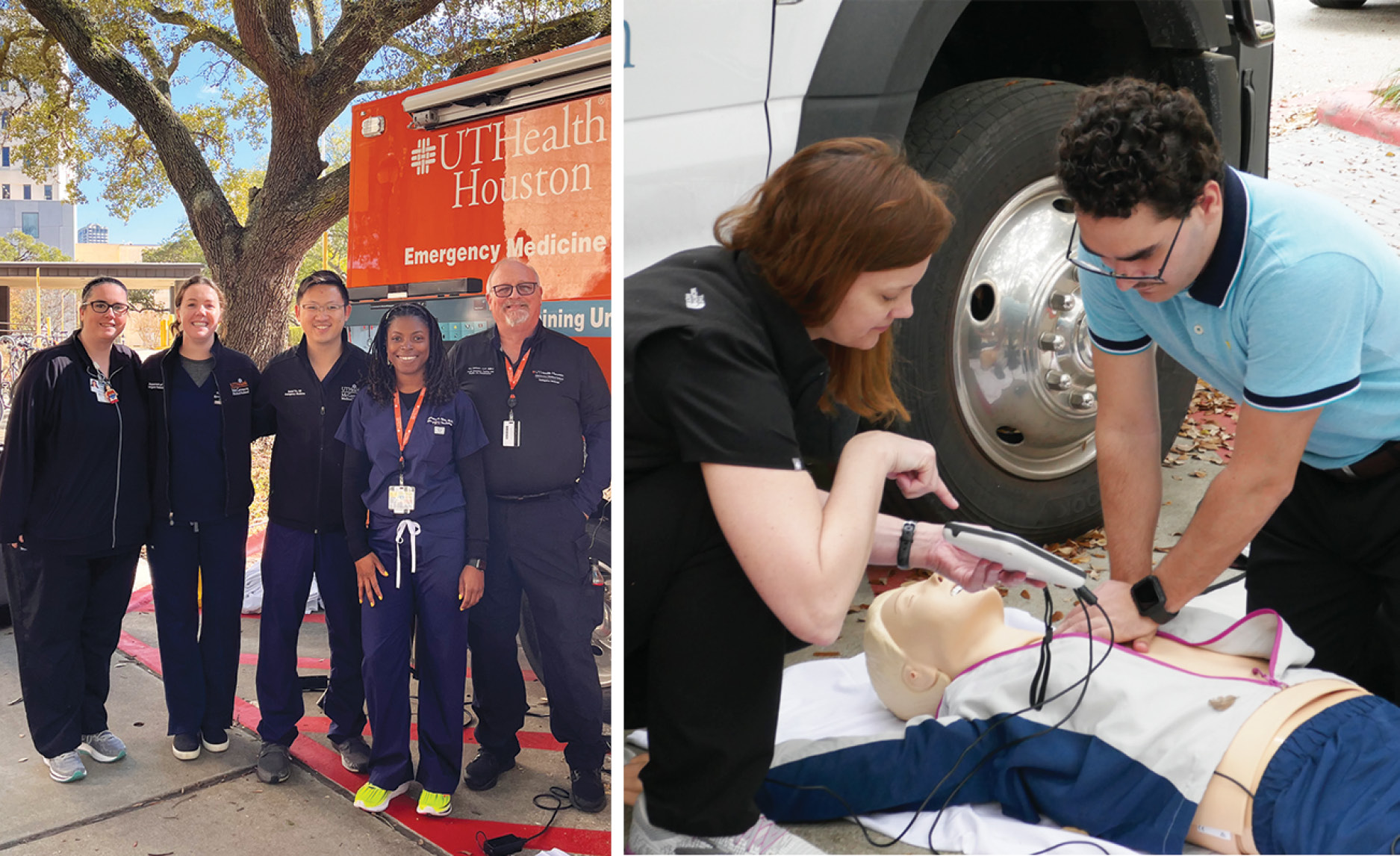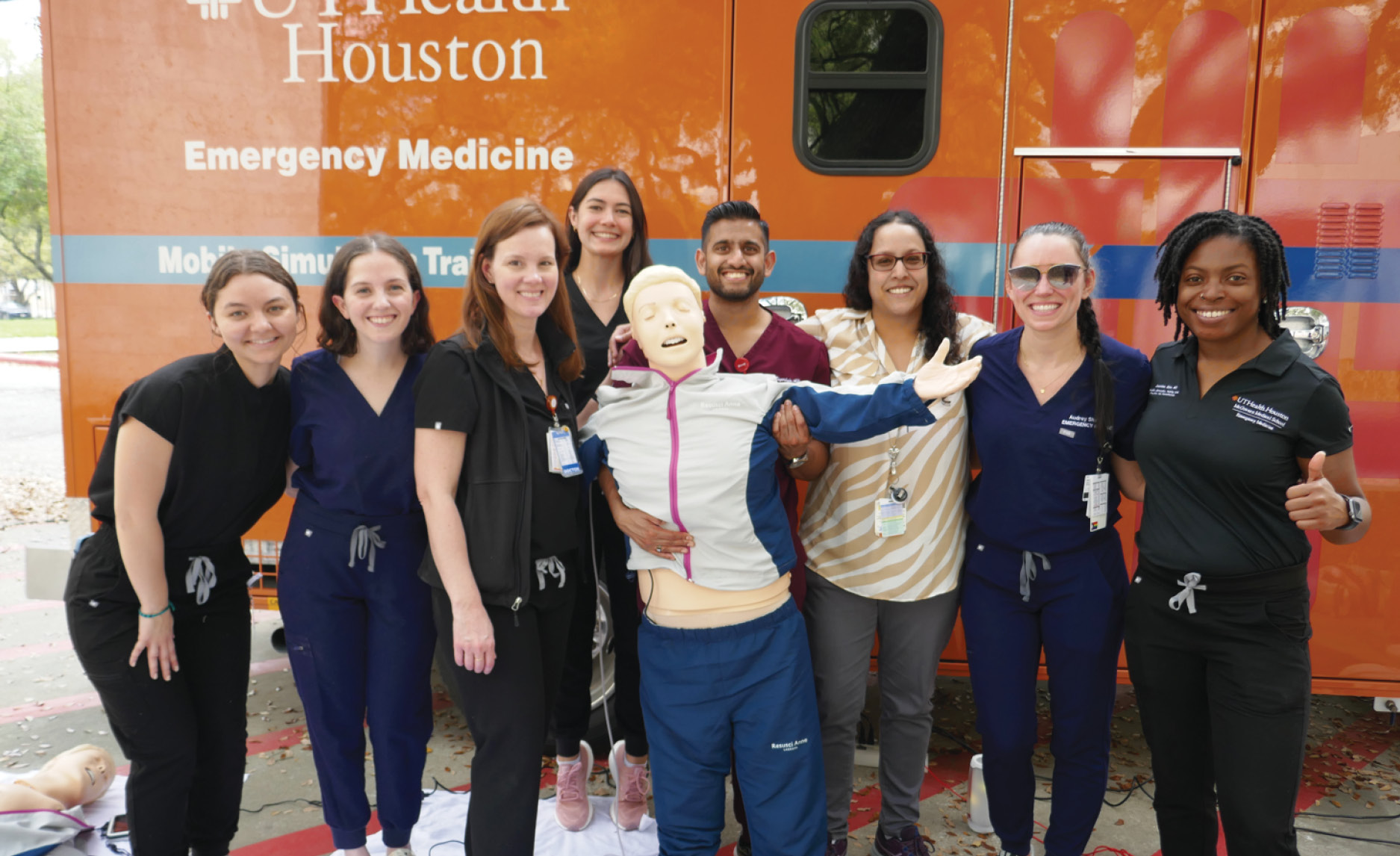Since 2019, the McGovern Medical School Department of Emergency Medicine has been working to optimize patient outcomes after out-of-hospital cardiac arrest (OHCA) through the Texas-Cardiac Arrest Registry to Enhance Survival (TXCARES). Prior to 2019, Texas was the largest state in the nation to not have a statewide OHCA registry
“Our Department of Emergency Medicine is proud to be leading this statewide effort to save lives from cardiac arrest across Texas. While we are an academic department, we are committed to improving the public health of Texans,” said Bentley J. Bobrow, MD, FACEP, who as department chair has led the effort to fund, expand, and utilize the TX-CARES registry to its full potential.
TX-CARES is the cornerstone for quality improvement in OHCA care in communities statewide, allowing EMS agencies and hospitals to enhance outcomes by tracking patient demographic data, event characteristics, and essential treatment parameters. The TX-CARES registry allows communities to implement cardiac resuscitation initiatives and measure their effectiveness. Without this measurement piece, there is no way of knowing the true impact of interventions such as bystander CPR training initiatives, EMS quality improvement programs, or even hospital post-arrest care.
In addition, Department of Emergency Medicine researchers using TX-CARES data have published cutting-edge, peer-reviewed research identifying large and unacceptable racial, ethnic, and socioeconomic disparities in prehospital and hospital OHCA care and outcomes statewide.

In 2022, TX-CARES added 11 EMS agencies statewide serving a total of 1.66 million people and grew the number of OHCA records reported to 11,028, an increase of more than 8 percent from 2021 (10,142) and 37 percent from 2019 (6,913). Since the program’s inception in 2019, the total number of reporting agencies increased from 16 to 65 in 2022, and the program now covers roughly half Texas’s population, compared to 25 percent in 2019.
The efforts of TX-CARES were on full display in May 2023, when Michael “Jim” Naida was enjoying a round of golf with his wife one hot afternoon in Pharr, Texas. On the seventh hole, Naida began to feel chest pain and experience shortness of breath and wooziness.

The City of Pharr EMS, a participant of the TX-CARES program, arrived on scene and witnessed Naida suffer an out-of-hospital cardiac arrest. They immediately began their resuscitation protocol by performing chest compressions, defibrillation, and ventilations that helped save Naida’s life and preserve excellent cognitive function.
“The fact that they (the responding team) were able to recognize that quickly and were able to bring this gentleman back, and he’s alive today, that’s awesome,” said Chief Daniel Ramirez. “Somebody’s grandpa is still alive; somebody’s husband is still alive; somebody’s brother is still alive, and somebody’s dad is still alive.”
The care that restored Naida’s life is just one example of the improbable cardiac resuscitation that TX-CARES communities are able to perform.
“Our efforts to disseminate and expand our TX-CARES program have been successful even during the pandemic,” said Bobrow, the John P. and Kathrine G. McGovern Distinguished Chair, and Nancy, Clive and Pierce Runnells Distinguished Professor in Emergency Medicine. “Our goal is for every community in Texas to have the same high quality of cardiac resuscitation response and the highest survival rates from OHCA.”

In November 2022, TX-CARES conducted an Out-of-Hospital Best Care Practices Symposium, attended by 111 prehospital and in-hospital Houston-area clinicians. Symposium faculty included professors from UTHealth Houston, the Penn Medicine TTM Academy, and medical directors from local EMS agencies.
“We are especially grateful to McGovern Medical School for their strong support and advocacy for the TX-CARES Program. Without this sustained support, TX-CARES would not exist and we would not be able to carry out this important public health effort and would never have saved so many lives from cardiac arrest,” Bobrow said.
